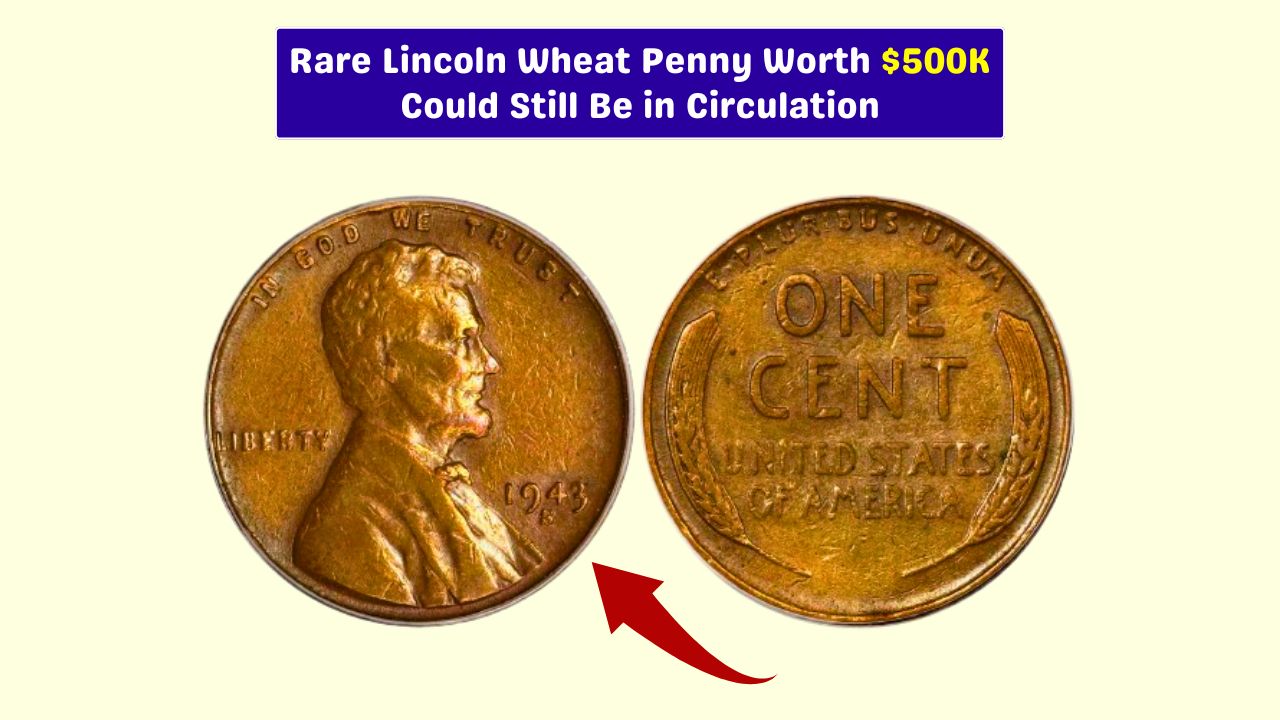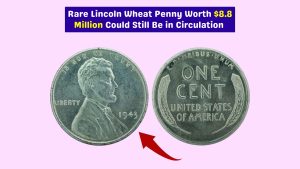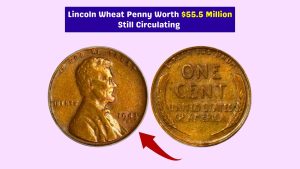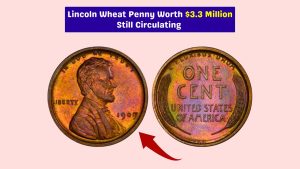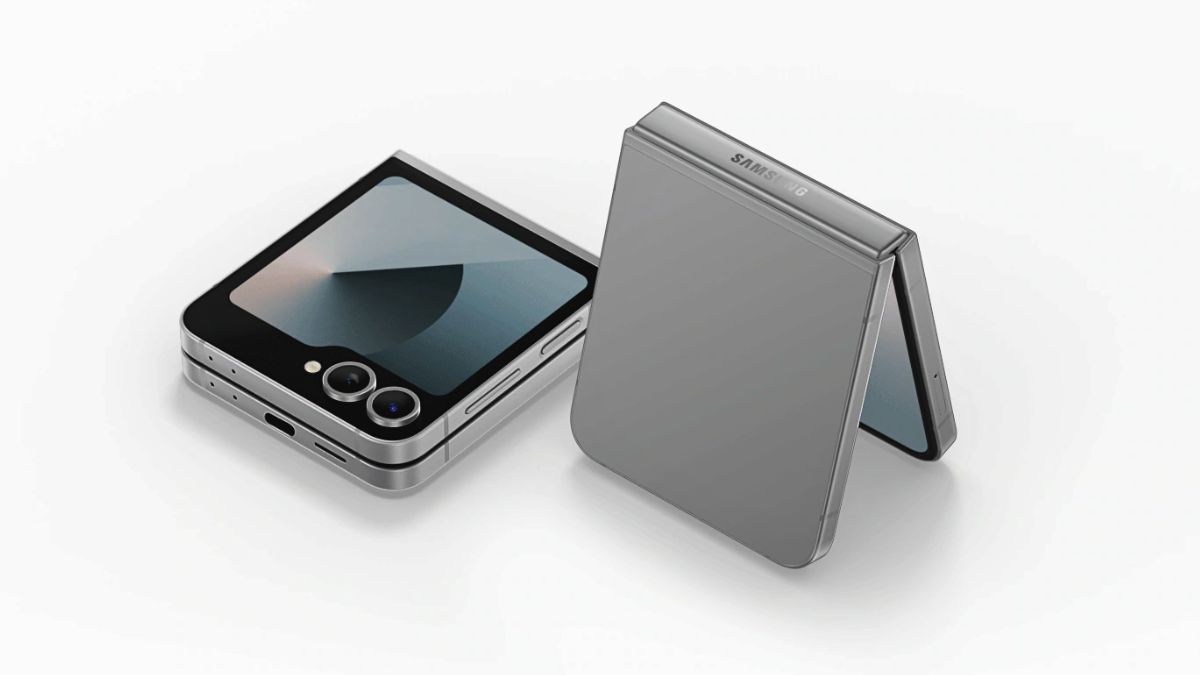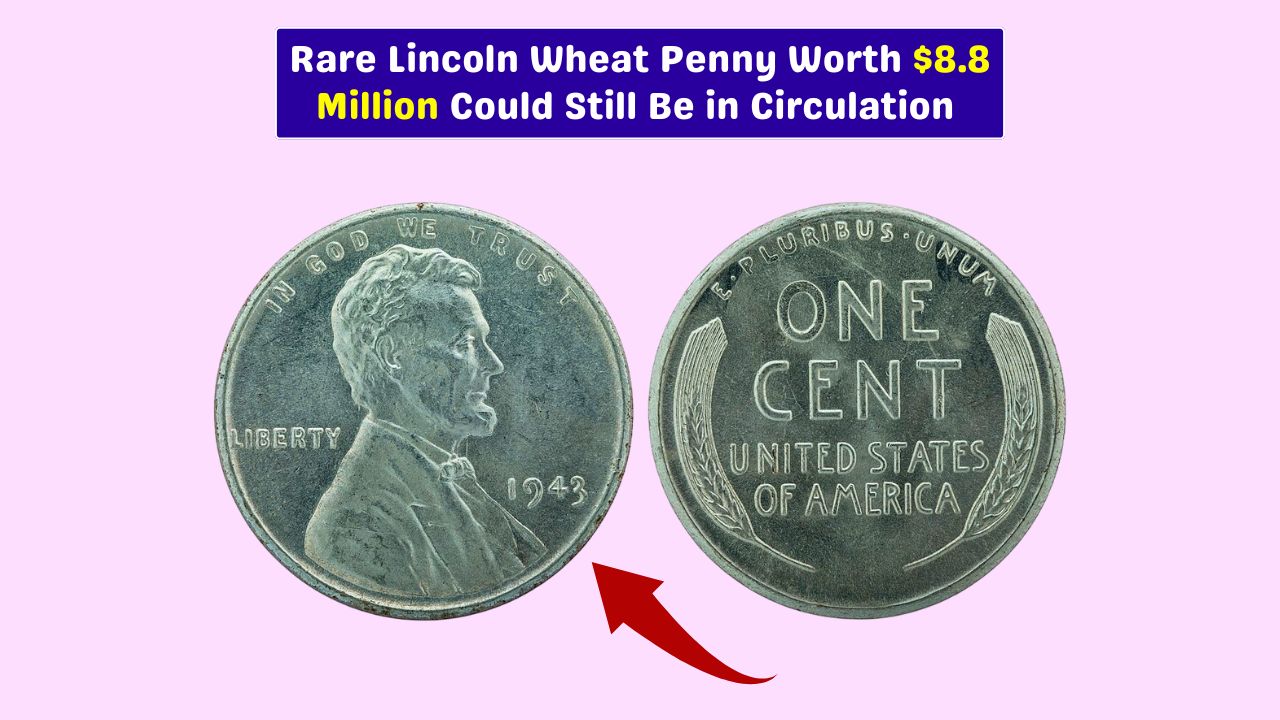It sounds like a fantasy, but what if that handful of coins on your dresser hid a jackpot? Believe it or not, there’s a specific Lincoln Wheat Penny that could be worth as much as $500,000 — and it might still be circulating today.
Yep, one lucky find could literally change your life. Let’s break down the mystery behind this ultra-rare coin and how you can spot one.
History
The Lincoln Wheat Penny, also called the “Wheatie,” first popped into circulation in 1909. Designed by Victor D. Brenner, this was the first U.S. coin to feature a real person — President Abraham Lincoln — instead of Lady Liberty. The reverse side? Two simple wheat stalks and the words “ONE CENT.”
These coins were minted until 1958, and while most are worth only a few cents or bucks today, a few rare variations — like the infamous 1943 bronze version — can rake in serious cash.
Rarity
So what makes the 1943 Wheat Penny worth half a million dollars? It’s all about a mistake. In 1943, due to wartime metal shortages, the U.S. Mint started making pennies out of steel instead of copper. These steel cents have a silver-grey look and are magnetic.
But a few bronze (copper) blanks from 1942 were mistakenly used in early 1943. As a result, a tiny number of copper 1943 pennies were struck — a major error that collectors go crazy for today. Fewer than 20 authentic examples are known to exist. One sold at auction for over $500,000!
Clues
Think you’ve got one? Here’s a quick checklist to help you figure it out:
| Test | What to Look For |
|---|---|
| Year | 1943 |
| Color | Brown or copper, not silver |
| Magnet Test | Should not stick to magnet |
| Weight | About 3.11 grams |
If your penny checks these boxes, stop everything and get it appraised by a coin grading expert. Seriously, don’t let it out of your sight.
Value
While steel 1943 pennies are super common (worth maybe a few dollars), the bronze ones are practically unicorns. They’ve sold at auction for $250,000 to over $500,000 depending on condition and provenance. Think about that — a single penny could be worth more than your car, your house, or even your entire savings account.
Circulation
Here’s the kicker: experts think a few of these bronze beauties are still out there. They may be hiding in your change jar, an old coin collection, or that dusty piggy bank from your childhood. Because they look so ordinary — just another brown penny — most people wouldn’t think twice.
That’s why collectors recommend checking every old coin you come across. Roll-hunting (sorting through rolls of coins from the bank) is another fun way to potentially score a rare find. All it takes is one coin to change everything.
A simple mistake at the U.S. Mint in 1943 created one of the most valuable coins in American history. The 1943 bronze Lincoln Wheat Penny is the ultimate hidden treasure — rare, valuable, and possibly still in circulation.
So next time you get change at the store, don’t just toss it aside. That unassuming penny might just be your ticket to a half-million-dollar payday.
FAQs
How do I spot a 1943 bronze penny?
Check the year, color, magnet test, and weight — it must weigh 3.11g.
What’s a 1943 bronze penny worth?
It can be worth from $250,000 up to over $500,000 at auction.
Do bronze 1943 pennies still exist?
Yes, a few may still be in circulation or in old collections.
Is a 1943 steel penny valuable?
Not much — most are worth just a few cents to a few dollars.
Where can I get my penny appraised?
Look for a certified coin grading service or trusted dealer.
